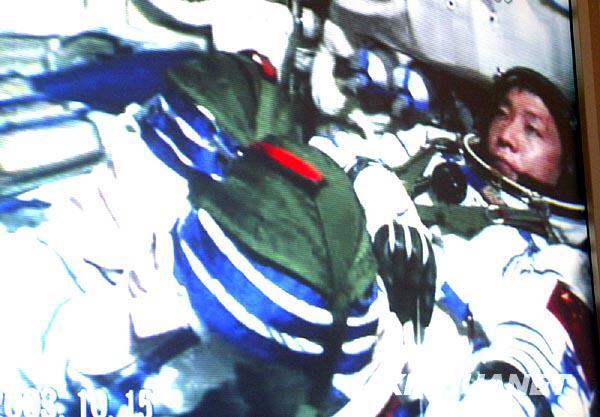First taikonaut marks 16th anniversary of space trip
China Daily | Updated: 2019-10-16 07:54

Yang Liwei, China's first man in space, said he was looking forward to setting foot on the moon.
He made the remarks on the 16th anniversary of his space flight aboard the Shenzhou V spacecraft on Oct 15, 2003, as cited by China Manned Space Agency.
"China has started to develop the key technologies related to a manned lunar landing," Yang said. "It would be exciting to see Chinese astronauts stepping onto the extraterrestrial body."
Yang trains every week and undergoes regular examinations.
"Like all the other Chinese astronauts, I'm ready for the nation's call," he said.
The success of Shenzhou V in 2003 made China the third country to acquire manned space travel technology on its own.
Yang recalled that some unexpected things happened during the country's first manned space flight. For instance, he encountered low-frequency resonance during the flight, which has the potential to harm internal organs.
"The feeling caused by resonance aboard the spacecraft almost killed me," Yang said.
After returning to Earth, Yang told space engineers about the problem, which was solved and avoided in later missions. From Shenzhou V to Shenzhou VI, more than 180 technological advancements were made.
In 1992, China started its manned space program with a three-step strategy.
The first step, to send an astronaut into space and return safely, was fulfilled by Yang.
The second step was developing advanced space flight techniques and technologies, including extravehicular activity and orbital docking. This phase also included the launch of Tiangong I, a transitional platform to test the docking technology, and Tiangong II, China's first space lab.
So far, China has launched 11 manned spaceships, one cargo spacecraft, Tiangong I and Tiangong II, sending 11 astronauts into space and completing the first two steps of the manned space program.
The next step will be to assemble and operate a permanent manned space station. The project is going well and the station is expected to be completed around 2022.
China is also selecting new astronauts for space station missions. The country will welcome overseas astronauts to work together with domestic astronauts aboard the station once construction is completed.
China's progress in space is a reflection of how strong the nation has become, and exploring space is a common cause of all mankind, Yang said.
The astronaut is eager to take part in activities that popularize science and spread his love for space.
"I hope more people can become astronauts," Yang added.
Xinhua
























